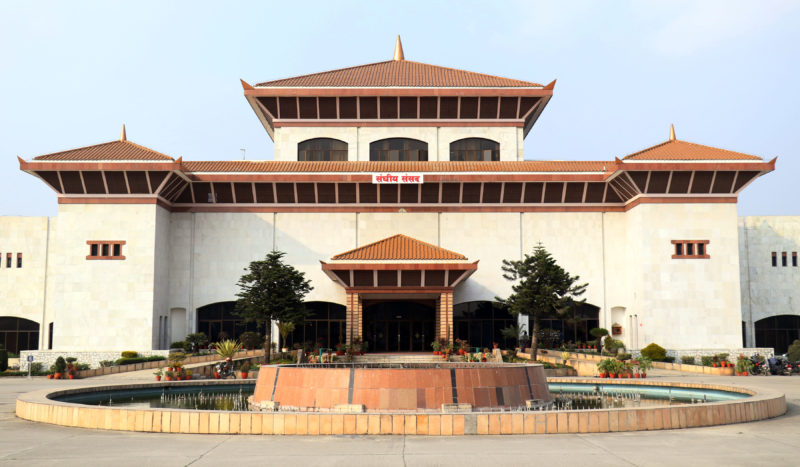Internationalise Lipulekh dispute if need be: House panel
Kathmandu, May 10
The State Affairs and Good Governance Committee of the House of Representatives has directed the Government of Nepal to find a long-term solution to border disputes with neighbouring countries through dialogue keeping in view national sovereignty, territorial integrity, national interest and dignity.
A meeting of the House panel held at Singha Durbar today also suggested that the government internationalise the border dispute with India if dialogue could not resolve the crisis amicably.
Earlier Co-chair of the ruling Nepal Communist Party (NCP) Pushpa Kamal Dahal told the panel that the Kalapani area, including Limpiyadhura, Lipulekh and Kalapani, that lay east of the Mahakali River was part of Nepal.
Dahal said although Lipulekh appeared to be a dispute between Nepal and India, China was also involved, as China had signed an agreement (in 2015) with India to enhance trade and commerce between the two through that region. Dahal said he was in favour of trilateral cooperation between Nepal, India and China to promote understanding and cooperation not only on trade and commerce but also on issues concerning the border. He said he had discussed the need for trilateral cooperation with Indian and Chinese leaders.
“We’ll have to think what is the right course for us before taking the issue to the International Court because India has published eight maps until now depicting the area up to Limpiyadhura and Lipulekh as its territories,” Dahal told the panel. He said Indian security forces had been stationed in the Kalapani area for the past 60-65 years and suggested to review what the previous governments of Nepal, as well as the current government, had done to reclaim the land. He said the government would use political and diplomatic means to resolve the issue.
Home Minister Ram Bahadur Thapa said the solution to encroachment of Nepali territory should be sought through diplomatic means. He said there was need to hold talks with China as well.
Had China not signed a pact with India to enhance trade and tourism through that region, there would not have been any relevance for opening the road, Thapa told the panel. He said Limpiyadhura, Lipulekh and Kalapani were in Nepal. He said the government would take the suggestions of panel members seriously and think about issuing Nepal’s map incorporating Limpiyadhura, Lipulekh and Kalapani.
Thapa said erstwhile rulers of Nepal made a mistake by allowing India to establish temporary security posts along the border to keep an eye on China. Former rulers succeeded in getting India to withdraw more than a dozen posts, but India did not remove its post from Kalapani, he added.
A version of this article appears in e-paper on May 11, 2020, of The Himalayan Times.






